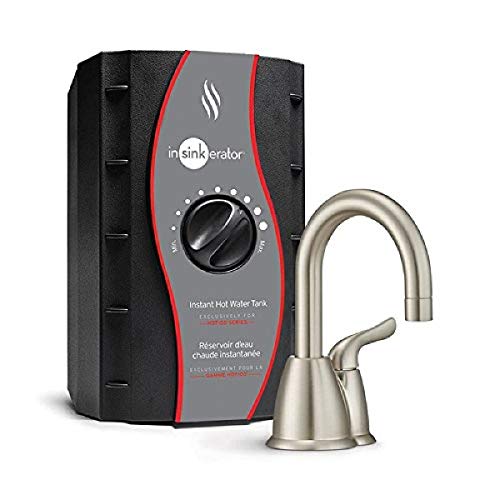It can be annoying to find out that the water pressure in your home is not working properly. This is especially so if your hot water pressure is not working well while the cold water pressure works just fine. What could be causing this? We have researched answers for you!
Here is a list of what could be causing low water pressure with hot water:
- Closed hot water valve
- Debris build-up in pipes
- Damaged pipes
- Faulty hot water faucet
- Faulty or damaged water heater
The main cause for loss in water pressure is a closed hot water valve. The passage of water through the pipes can also be blocked by gunk and debris. If your cold water pressure is working, then this means something is blocking the hot waterway specifically.
Hot and cold waterways can have different attachments that affect not only the temperature but how water flows through them as well. In this article, we will go over how low pressure for your hot water can occur, and how to fix it. Read on to learn more!
![modern independent heating system in boiler room , Why Is There No Hot Water Pressure In House [But Cold Water Pressure Is Fine?]](https://hvacseer.com/wp-content/uploads/2022/09/65.-Why-Is-There-No-Hot-Water-Pressure-In-House-But-Cold-Water-Pressure-Is-Fine.jpg)
Why Is There No Pressure In The Hot Water?
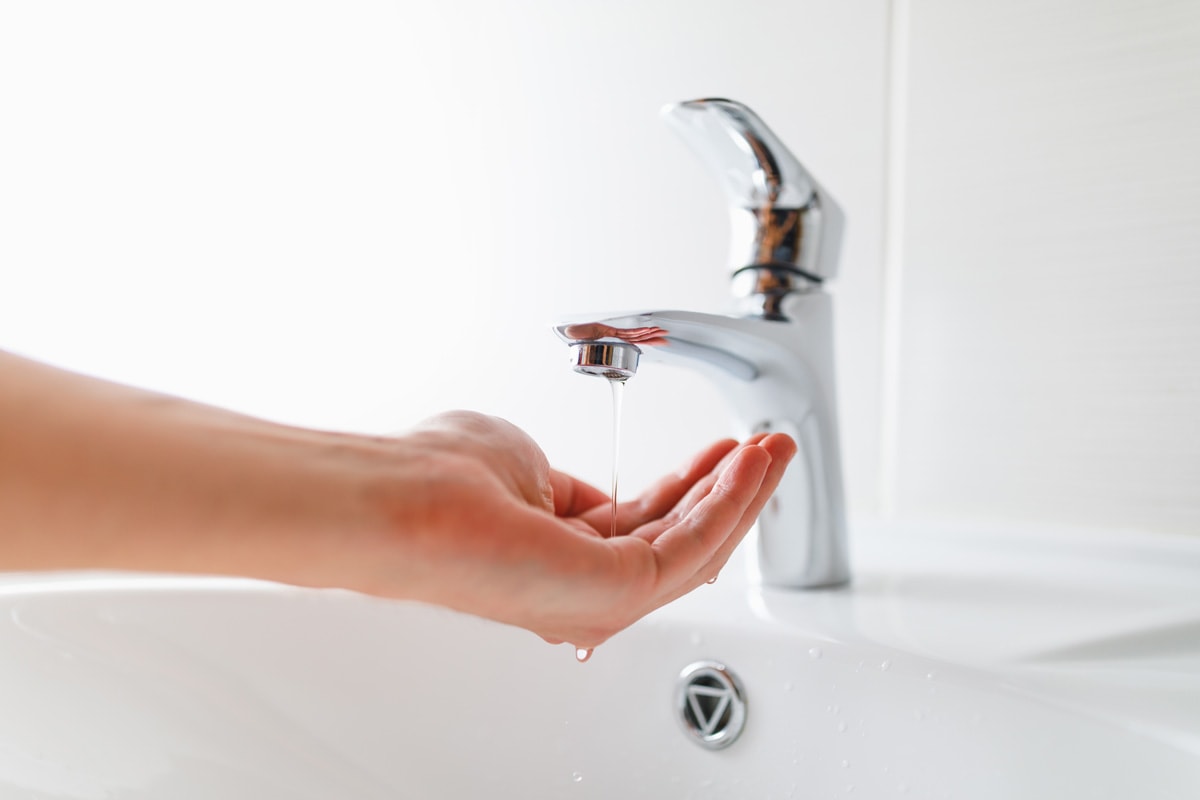
Hot water and cold water come from the same main water source. So, if there is an issue with your plumbing that causes little to no hot water pressure, then it can be confusing if only one of the taps is working.
As we mentioned above, some causes could only be affecting the hot water pressure specifically. Throughout your home, water diverges at some point to feed into the hot water tap. So, the problem is isolated in that area.
Your main culprits are either a closed valve or debris. A closed valve can be easy to solve: simply open it to get the water flowing well again. You can find the valve switch either under the switch or along the pipe work.
If opening the valve does not fix low pressure with hot water, or it was already open in the first place, then the next likely cause is debris. This can be stuck along the hot water pipe, or even just in the faucet itself.
How Do Faucets Change Water Temperature?
Though your tap water comes from a single plumbing system, two different lines lead to each tap. The one for the hot water diverges and passes through a water heater. When you turn the hot water faucet on, this line activates and heats the water as it flows to you.
Problems can also crop up along the line that diverges into the water heater. The pipes can also block up, or even have damage. Should there be a hole or leak in any of the hot water pipes, then this could also be causing the lack of pressure.
Faulty Hot Water Faucet
Your pipes might have no issues. And, if in the case there is no debris, damaged pipes, or a closed valve, then you might want to take a look at your faucet. Aside from debris building up in your faucet, its mechanism may not be working properly.
You can usually tell that this is the case if only one or two hot water taps in your house are not working while the rest are. Chances are it is a faulty faucet preventing your hot water from flowing with enough pressure..
For example, the faucet might not be letting water out when you twist the handle or open it. The same goes for your heating system. The water heater could stop heating the water properly, leading to nothing but cold water coming out.
Click here to see Hot Water Faucet with Heater on Amazon
What If I Have Hot Water Pressure But No Cold Water Pressure?
The opposite can also happen with similar causes. Your cold water pressure is susceptible to blockages, damage to the pipes, or closed valves just as much as the hot water tap is.
As much as this guide is focused on addressing little to no hot water pressure, you can apply the same tips and information that we lay out in this post.
Why Is There No Water Pressure In The House
If there is no water pressure in the house at all, then it is a main water source problem. The issue could stem anywhere from your own home's source, or even the water source of the immediate area.
When you experience completely no water pressure or inconsistent water pressure, you can alert your local authority. Damage in some of the main pipes could be afoot, or blockage in the plumbing.
How Do You Fix Weak Hot Water Pressure?
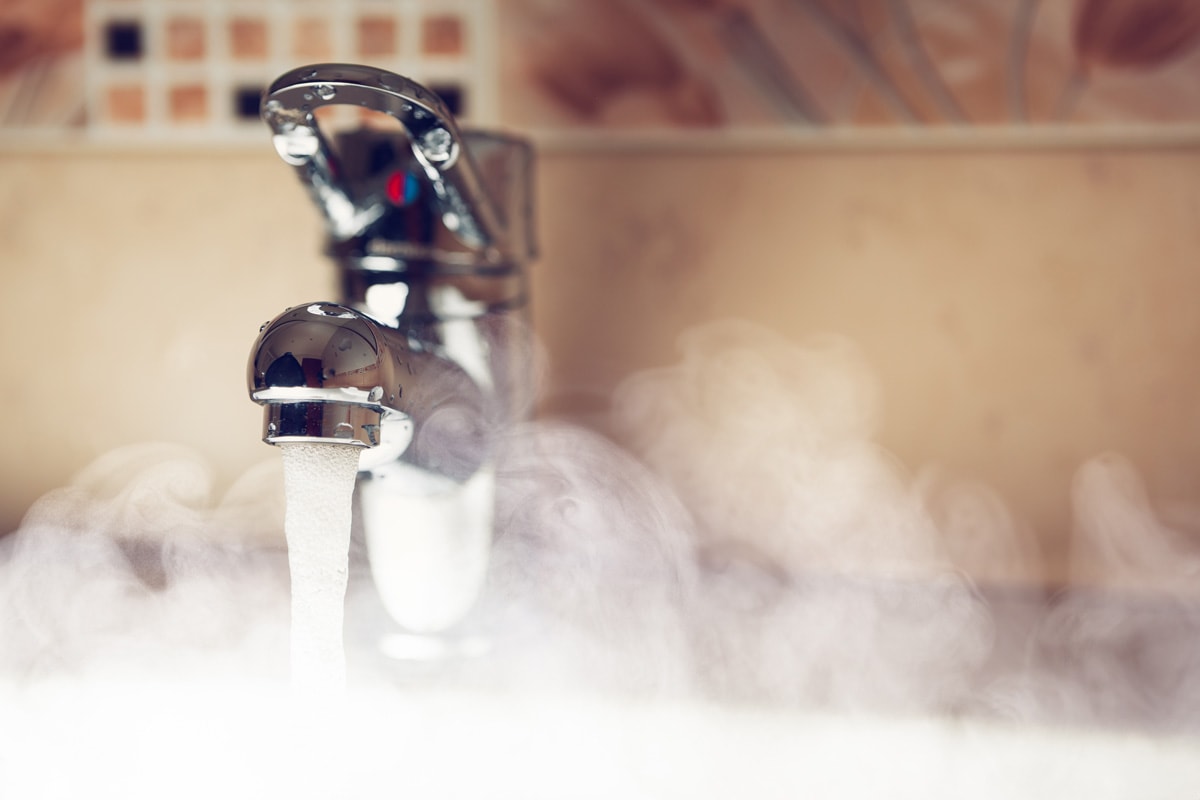
Just like with any other repair job, you have to identify the source of the problem first. Inspect your plumbing to see which of the causes we listed is affecting your hot water pressure.
Once you know what is making your hot water pressure weak, you can respond appropriately. Clean any clogs and blockages in your pipes and filters. If there is any damage, reparations are in place.
In case repairs may be too complicated, call a professional. You should also seek help from a professional if you are having a hard time tracing the source of your weak water pressure. A plumber will be able to spot problems that you do not realize are there.
Should Hot Water Be The Same Pressure As Cold Water?
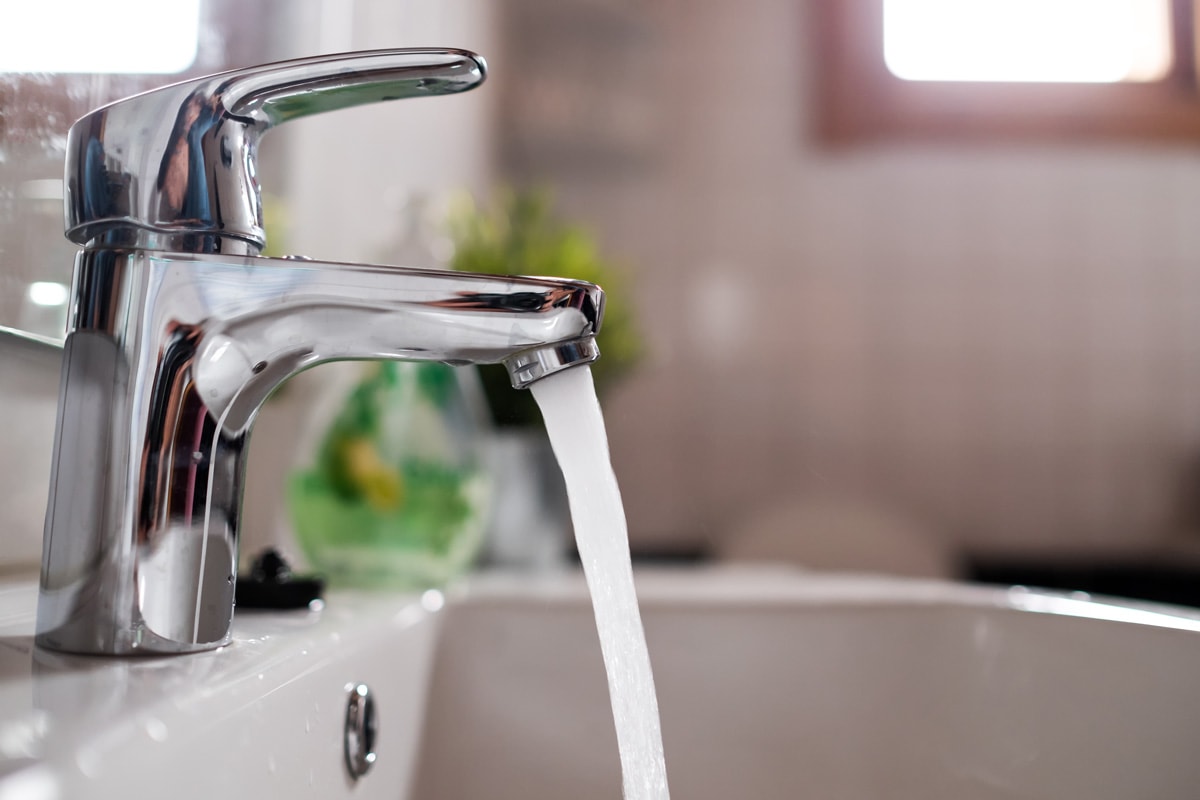
Most of the taps in your house need to have the same water pressure. Of course, you can still adjust the pressure to your liking with different attachments and adjustable valves. For the most part, however, there is a plumbing standard for how much water pressure you can have.
The standard amount of water pressure for houses in the US is between 40 PSI to 60 PSI, or even 80 PSI. This is equivalent to the number of pounds of water per square inch. Going below or above these standards can start to cause problems.
Too low water pressure (which would be anything below 40 PSI or at the very least 30 PSI) leads to little to no water flow at all. On the other hand, pressure above 80 PSI will start to damage your pipes and other appliances that use water flow like the washing machine or dishwasher
How To Check Water Pressure
You can usually tell how high or low your water pressure is whenever you turn on the tap. For example, if your water runs more harshly or slower than usual. However, you can still figure out the exact amount of pressure by using a water pressure gauge.
Click here to see Water Pressure Test Gauge on Amazon
When using a water pressure gauge, ensure that nothing in your house can affect the overall reading. Turn off every tap, shower, and appliance that uses water. Attach your gauge to the pipe close your meter.
Once you hook up the gauge according to its instructions, you can look at its reading of your water pressure. Ideally, it should be within the standard range.
How Does Plumbing Affect Water Pressure
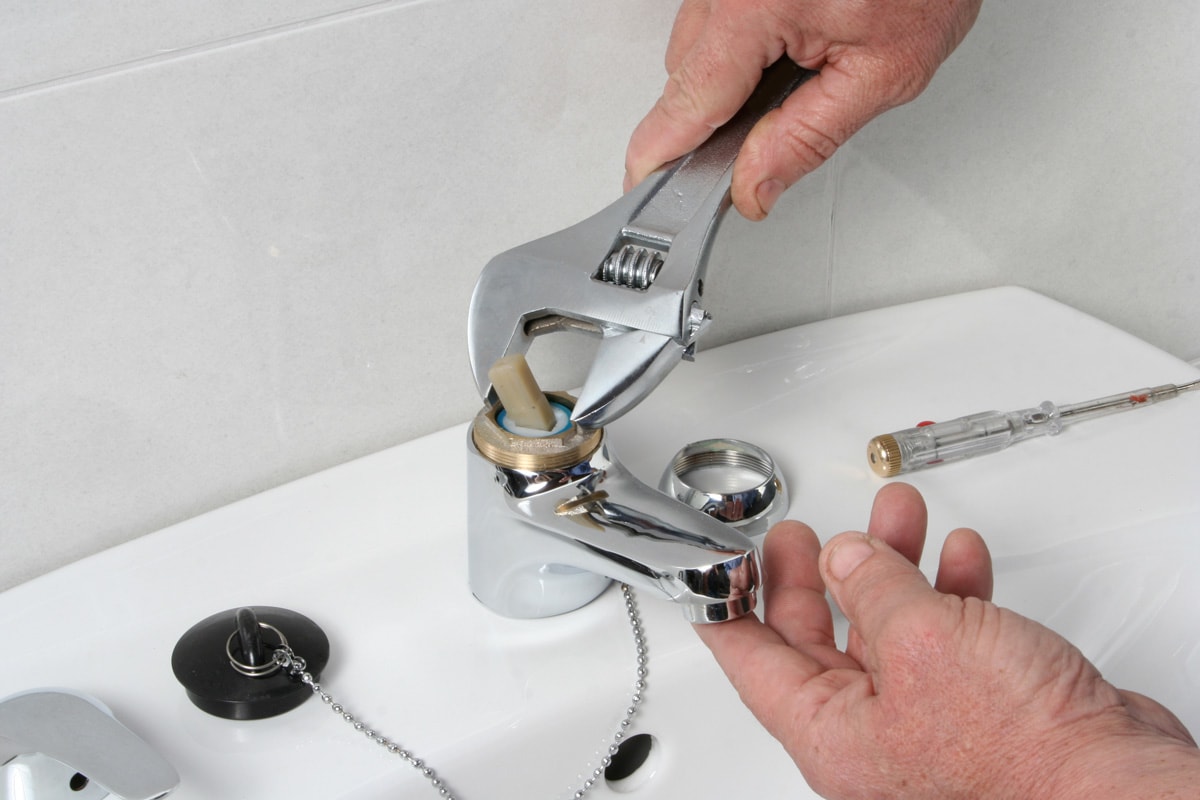
Every home in the US must follow federal plumbing and water regulations. This includes the standards for water pressure that we mentioned above. Following regulations is vital to maintaining your safety, both health and home-wise.
Plumbing following regulations avoid unwanted damage and issues in your home. Any issues with the water supply can be traced back to poor or outdated plumbing.
For example, your house cannot be too far from the water supply, or else it could compromise water flow and water pressure. Using too many elbows and bends with PVC pipes is also done with reservations for the same reason.
Good plumbing keeps away the risk of contamination as well. Water must stay as clean as possible to avoid poisoning and polluting people and the area. Keeping contaminants out also decreases the possibility of build-up and clogging through clean water pipes.
Wrapping Things Up
When the hot water pressure in your house does not work, but the cold water pressure does, then you are facing plumbing issues concerning your home's hot water line.
Any part of the hot water line could be causing the issue. In any case, you can try repairing the problem by yourself with the tips we left you in the article. However, should the task be too difficult or beyond your skill level, it is best to call up a professional.
Did you find this post helpful? Check out our other articles before you go!

